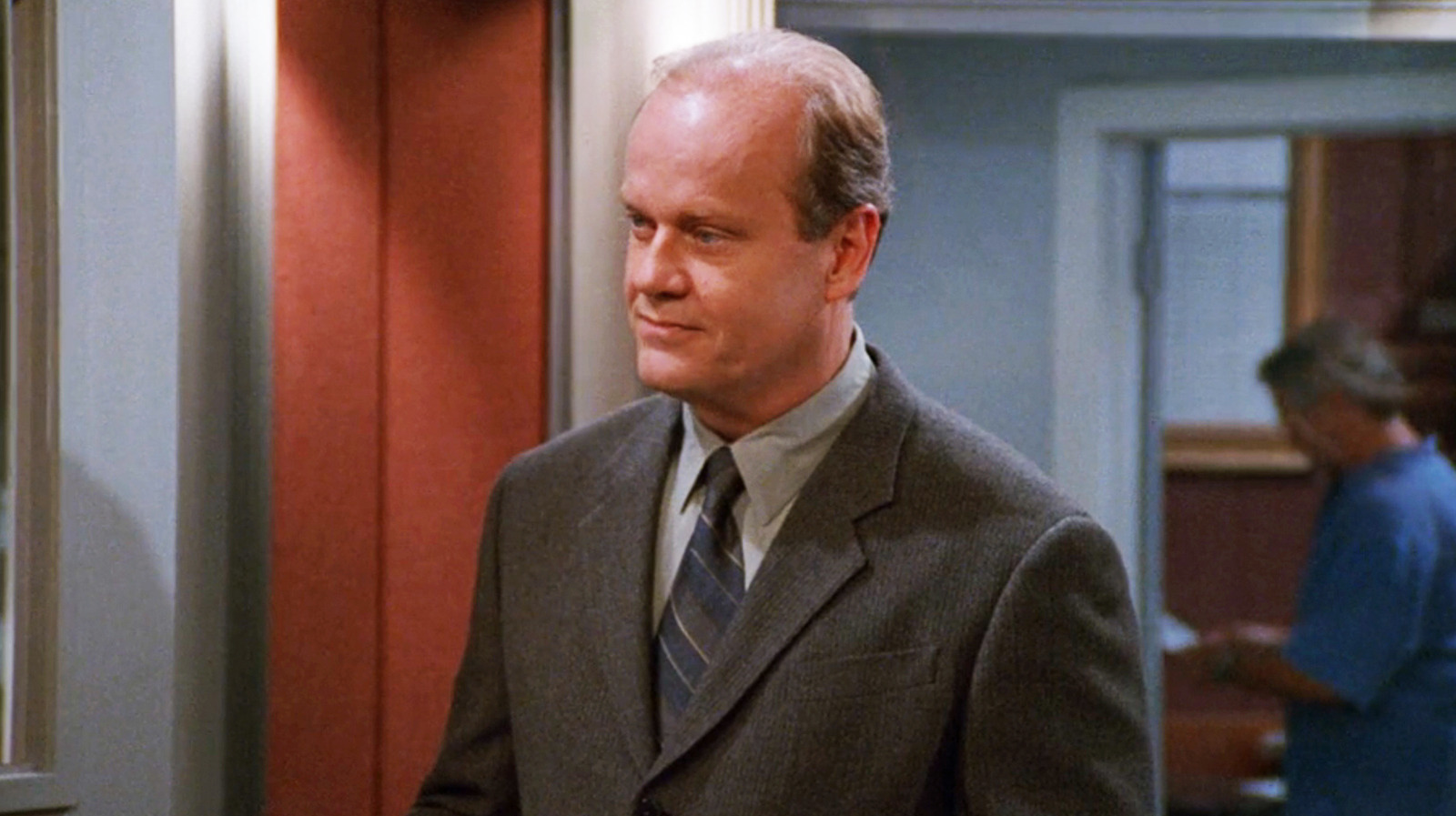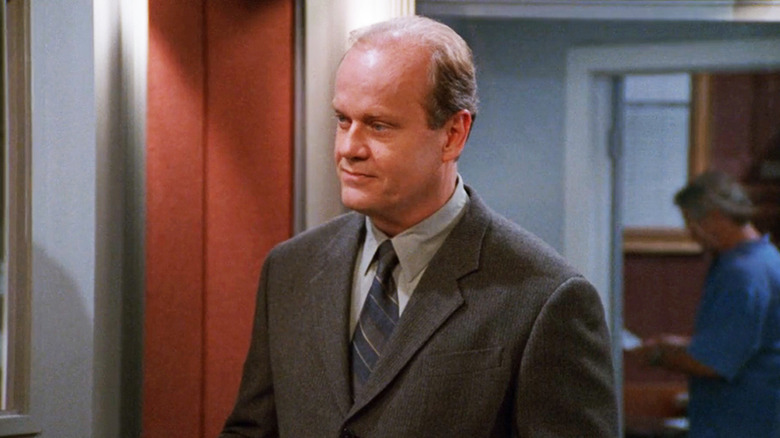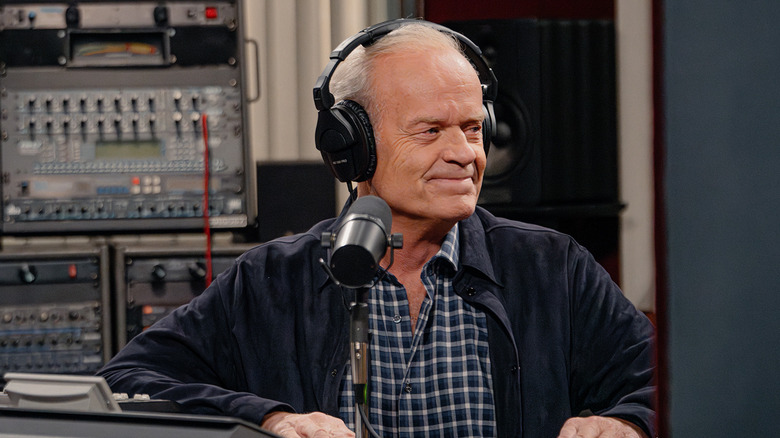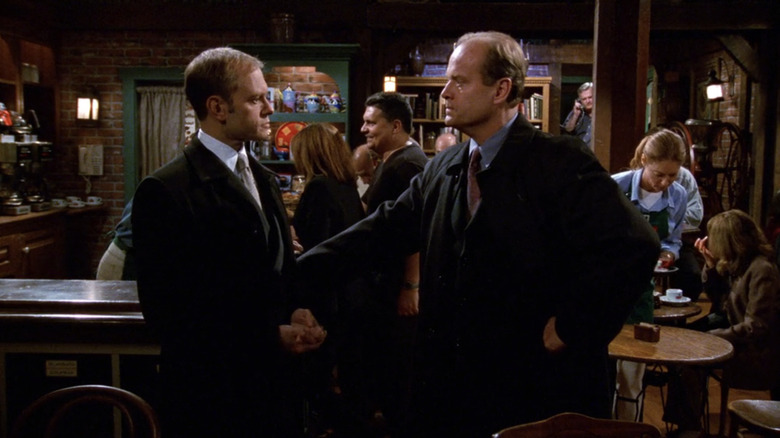During the 200th episode of “Frasier,” billionaire tech mogul Bill Gates stopped by the titular doctor’s radio station to tout his then new Windows XP operating system. It was an odd moment for the sitcom, which ran for 11 seasons from 1993 to 2004 with very few blatantly promotional stunts of this sort. There was, of course, the time Dr. Phil stopped by for one of the worst episodes of “Frasier,” but otherwise the series stayed relatively insular, concerned only with its own little sitcom vision of Seattle and the people therein.
Years later, the show remains a beloved example of ’90s sitcom brilliance, setting itself apart from contemporary series such as “Friends” or “Seinfeld” with not only a more hifalutin sense of humor but by also leaning into theatrical farce in a way that its rival shows didn’t. “Frasier” often felt like watching a real stage play, especially in the more straightforwardly farcical installments, such as the famous ski lodge episode. In that way, there was a timelessness to the series that was perhaps even more pronounced than on other sitcoms at the time. “Friends” wasn’t all that topical, but it certainly felt more of its time than “Frasier.”
Some of that may have to do with how “Friends” became a trend-setter in its own right, following younger, cooler 30-somethings as they navigated the ’90s and influenced a whole generation in the process. Meanwhile, “Frasier” star Kelsey Grammer and co. were more comfortable putting on their stage plays and sending up the protagonist’s high society ambitions, entirely unconcerned with trends or the wider world generally outside of Dr. Crane’s Seattle. For Grammer, this is partly why the show has proved to be so enduringly lovable.
Frasier eschewed contemporary culture
In 2023, Dr. Crane returned to screens as part of the neither disappointing nor remarkable “Frasier” revival series, which streams on Paramount+. The show divided critics upon its debut, and depending on who you ask, came with some pretty glaring issues, most notably the lack of any of the original cast members besides Kelsey Grammer. But there is at least one thing the new series got somewhat right. It is as apolitical and as unconcerned with contemporary culture as its predecessor, thereby stoking the same comforting tone as that original sitcom.
For Grammer, it’s this which is so crucial to both iterations of the show and their appeal, but especially for the OG “Frasier,” which intentionally stayed inwardly-focused throughout. During a Q&A for the streaming revival, the star explained:
“Contemporary culture was always eschewed by us. I mean, for instance, ‘Murphy Brown’ did a lot of Dan Quayle jokes and we just thought, ‘Well, that’s not going to be funny in five years, that’s not even really that funny right now.’ […] The idea that we resisted mining an easy contemporary culture joke really did contribute to the longevity of the show.”
Will new Frasier be as enduring as old Frasier?
At the same Q&A, Kelsey Grammer was joined by his “Frasier” revival co-star Jack Cutmore-Scott, who plays Dr. Crane’s son Freddy. The British actor confessed to not having seen the original series when he first landed the role, but spoke about watching it in preparation for the revival. In so doing, he claimed to have noticed how there “aren’t a huge number of political references” or “huge social commentary,” adding that “as a result it ages incredibly well.” He continued, “You forget that this wasn’t shot yesterday. You forget that it’s been 20 or 30 years because the situations they’re dealing with, the relationships that they’re exploring, are perennial.”
Cutmore-Scott went on to praise showrunners Chris Harris and Joe Cristali for preserving that approach in the revival series. While there are plenty of criticisms that can be leveled at the pair, this crucial neglect of contemporary culture does seem to have been maintained from the original show. That said, while the observations and jokes contained in the streaming series certainly aren’t too concerned with the social commentary or politics, the show’s overall tone isn’t quite what the “Frasier” of old represented.
Harris and Cristali have, whether intentionally or not, made the new series feel a lot more broad than its predecessor, with jokes influenced by more modern sitcom sensibilities watering down the more sophisticated humor that characterized ’90s “Frasier.” As a result, that feeling that you’re watching something timeless is far less pronounced on the streaming show, which is frequently hampered by this distinctly modern sitcom humor. In fact, it’s often quite jarring how outdated the comedic beats are in the revival series when compared to the actual ’90s sitcom itself. With Kelsey Grammer previously having spoken about his ambitious plan to keep playing Frasier for another 100 episodes, he’ll have to try to inject a bit more of the old “Frasier” magic into his revival show in order for it prove as enduring as that perennial sitcom.
The “Frasier” revival is currently streaming on Paramount+.











